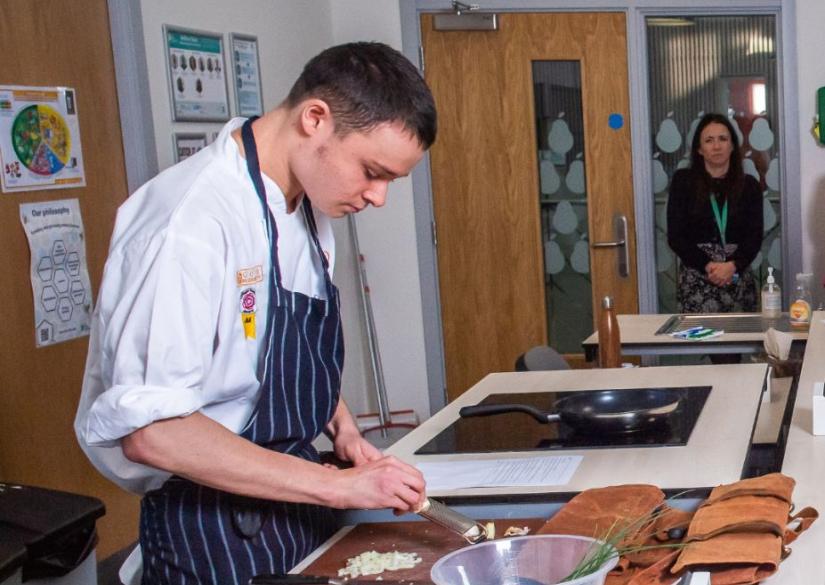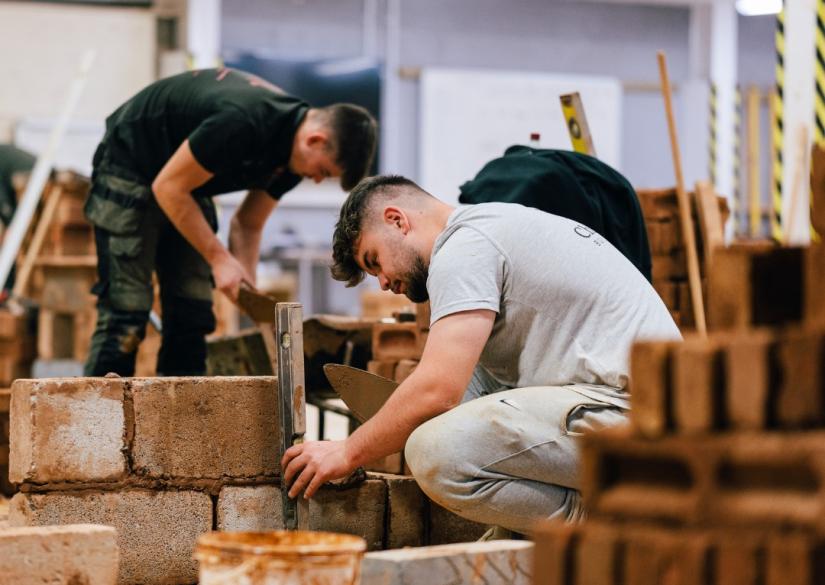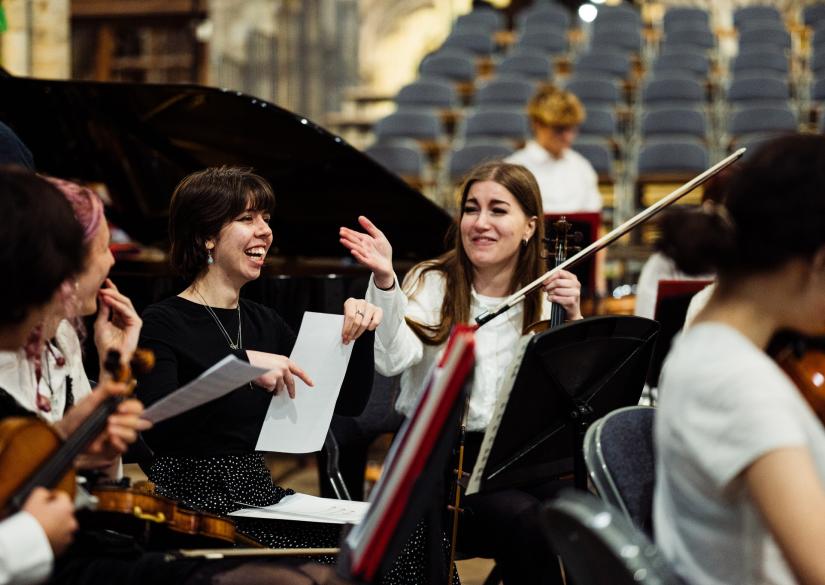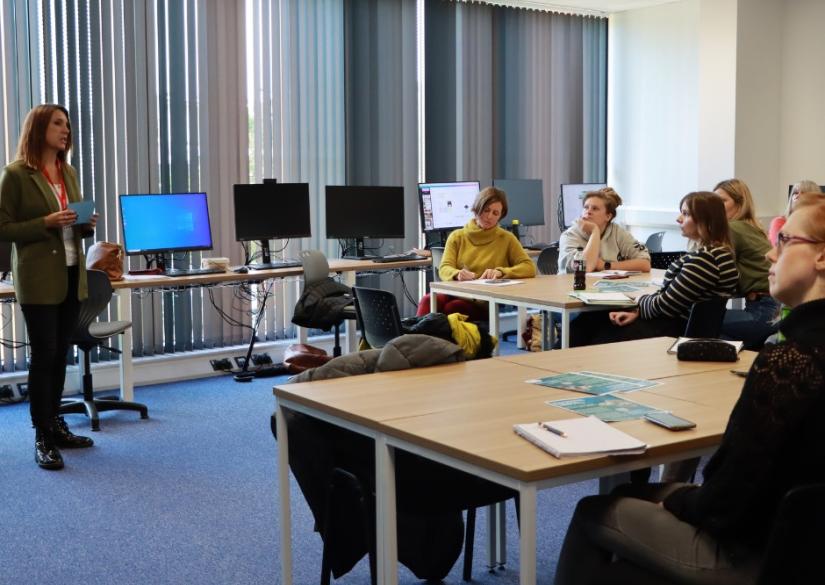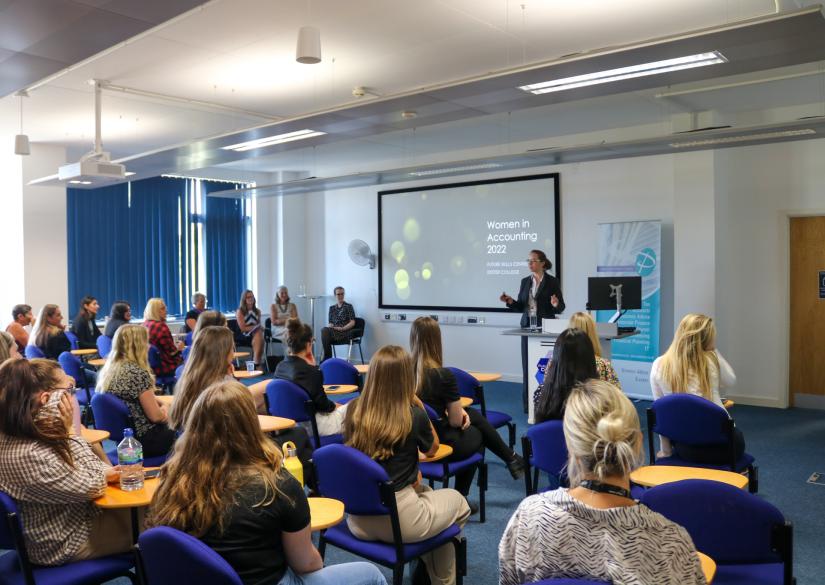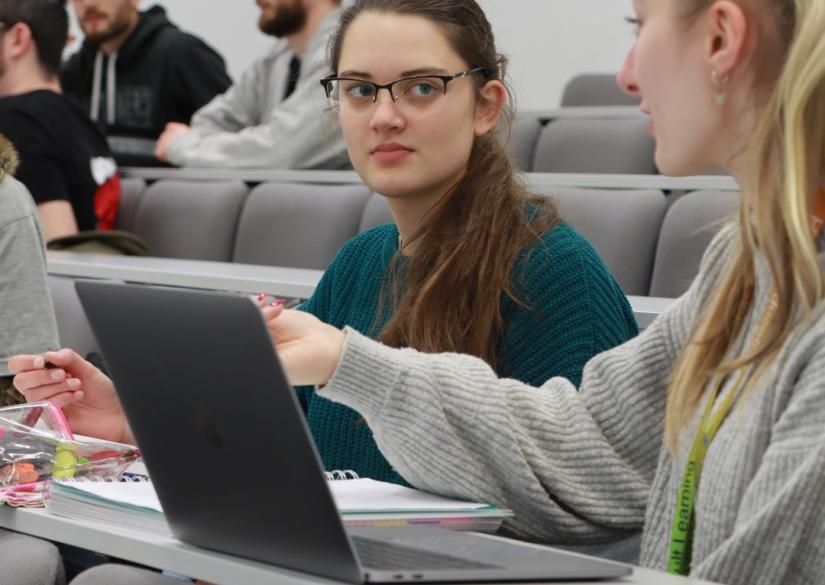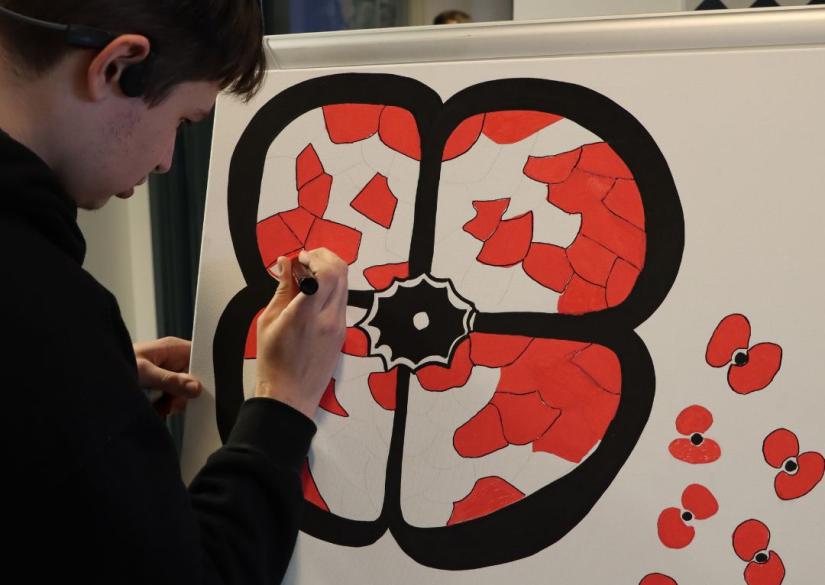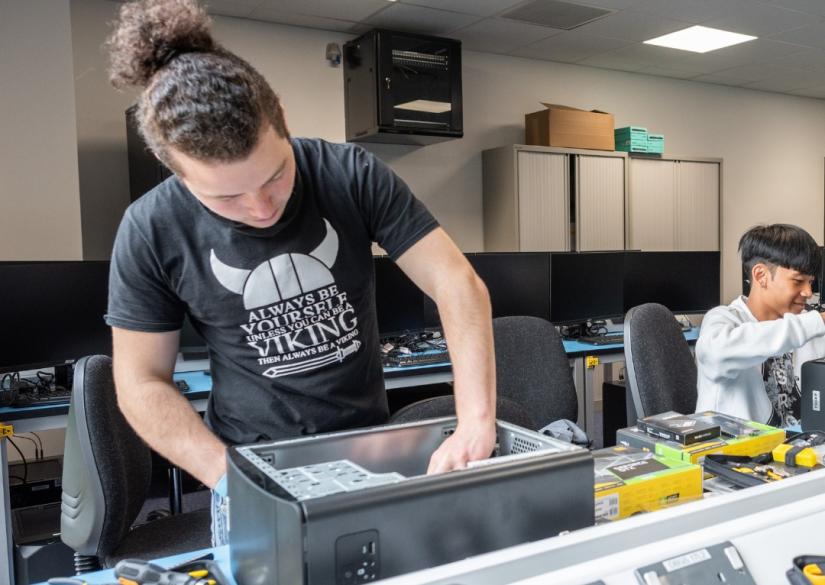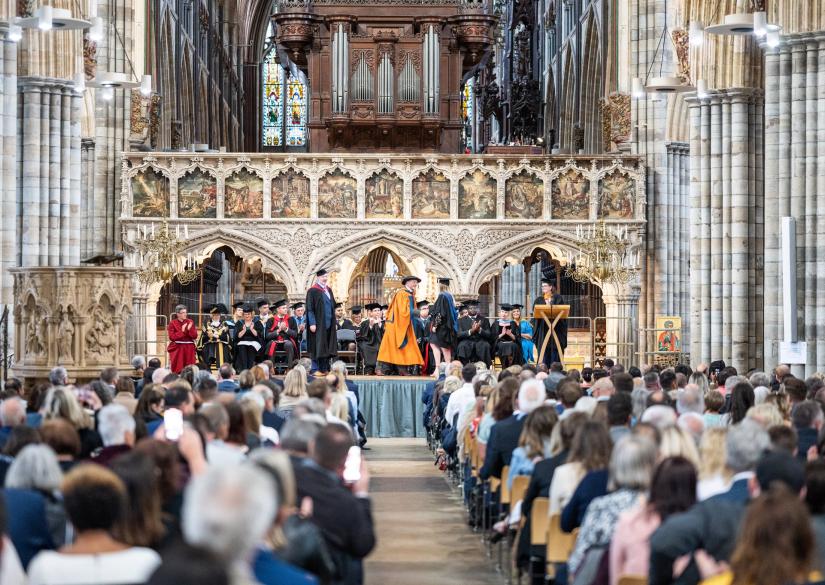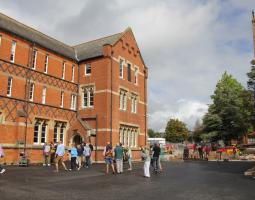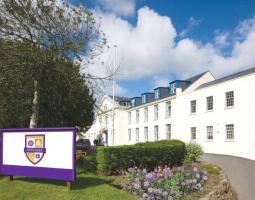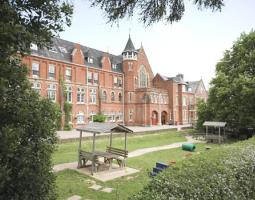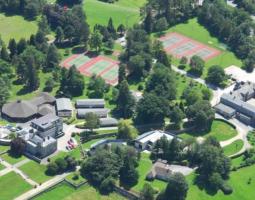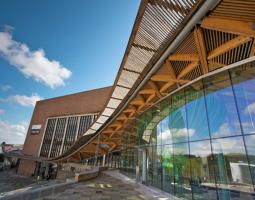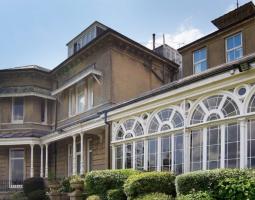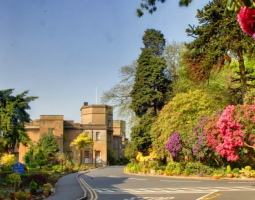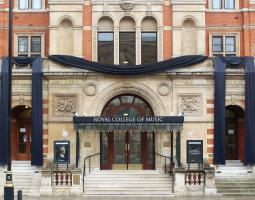Exeter College
Programs and prices, tuition fees in Exeter College
A-Level Courses, A-Level Courses
- Age — from 16 years old,
- The duration of the training is two years.
Students who have completed high school have access to preparation courses for the important exam, which is accepted at many universities around the world. The A-Level qualification confirms competitive knowledge and skills, allowing students to enter a university without entrance exams.
Some of the programs are:
- 3D design,
- Biology
- Business
- Chemistry
- Classical civilization,
- Advanced Mathematics,
- Early Modern History (1485-1799),
- Economics
- English Literature,
- Environmental Science,
- Film Studies,
- Fine Arts,
- Graphic Communication: Art & Design,
- Philosophy
- Psychology.
Each of the courses will take two years with a full-time attendance format.
BTEC Courses, BTEC Courses
- Age — from 16 years old,
- The duration of training is one to two years.
High school students who have completed school education can obtain a BTEC qualification in the following areas:
- Applied Science: Biomedicine, Forensic Medicine,
- Business
- Engineering
- Health & Social Support,
- Public Services,
- Sport: Performance and Excellence,
- Music Technology,
- IT innovations,
- Sport: Football Player Development Program,
- Travel & Tourism.
These and other specializations will provide students with high-quality knowledge in their chosen profile and help them prepare for admission to the chosen university.
GCSE Courses, GCSE Courses
- Age — from 14 years old,
- The duration of the study is one year.
The GCSE programme is preparation for an important qualifying exam.
Available GCSE programmes:
- Mathematics – improving math skills,
- English – development of existing knowledge in the field of reading, writing, speaking and listening.
T-Level Courses, Technical Courses
- Age — from 16 years old,
- The duration of training is one to two years.
The qualification obtained in the technical courses is a continuation of the GCSE and is equivalent to three A-Levels. The programs combine classroom theory, hands-on training, and three months of on-the-job training to provide students with the skills they need to succeed in the world of work.
The two-year T-Levels course not only provides a solid insight into the industry, but is also recognised by UCAS when applying to university, with excellent course results equivalent to three A* grades at A-Level.
Available Specializations:
- Business
- Cosmetic therapy,
- Health, Social Assistance and Child Care,
- IT.
International Baccalaureate Program
- Age — from 16 years old,
- The duration of the training is two years.
This qualification allows apprentices to gain an internationally recognised qualification. The curriculum invites students to study six subjects: three at the Higher Level (HL) and three at the Standard Level (SL). A wide range of disciplines span languages, humanities, mathematics, and science. The main academic part of the course is complemented by three components: Theory of Knowledge (TOC), a 4000-word extended essay, and a portfolio of creative, active, and service activities known as CAS.
Students will learn through group lectures, discussions, practical work, small group talks, language classes, and individual work. All subjects include internal assessment, such as essays, oral and practical work.
Groups of subjects from which six disciplines must be chosen:
- Language: English Language and Literature,
- Second foreign language: French, German, Italian, Spanish,
- Individuals and Societies (Humanities): Geography, History, Psychology,
- Sciences: Biology, Ecological Systems and Societies,
- Mathematics: Applications and Interpretations,
- Electives: Chemistry, Italian, Global Politics.
Bachelor's Programs
- Age — from 18 years old,
- The duration of the training is one to three years.
Bachelor's degree programs allow students to receive both a full diploma in their chosen specialty and certification of the knowledge gained. The duration of the course and its cost depend on the choice of the course level.
Some undergraduate specializations available are:
- Sports therapy,
- Bookkeeping
- Business & Administration,
- Care & Education,
- Consulting
- Digital Technologies,
- Education in the early years,
- Design & Manufacturing,
- Leadership, Management and Human Resources,
- Jurisprudence, Finance,
- Pedagogical education.
Description of Exeter College
- Location: Exeter, England,
- Founded: 1893,
- Language of instruction: English,
- Type of study: blended.
Exeter College is a comprehensive higher education college offering a wide range of courses, including A-Level, BTEC, GCSE, and continuing education programmes.
Exeter College was founded in 1893 as Exeter Technical and University College, being the only such institution in the country at the time. Since 1959, Exeter College has not changed its name and location, remaining the highest-ranked college in England.
The student body is represented by local and international students: more than 66% of them come from all over Devon and the South West, the rest from other regions and countries. Most students are 16-18 years old or even older.
Exeter College boasts a number of specialized academies providing training for students in sports, journalism, music, academic ability, dance, esports, hospitality, and catering. Thanks to the established strong links with employers of leading local and international organizations (Met Office, Michael Caines, Exeter Chiefs, Exeter City Football Club and others), students have the opportunity to gain applied experience and Letters of recommendation that allow you to get into the best universities around the world. Cooperation and an academically rich specialized program guarantee the up-to-date knowledge gained by the student and its applicability in the labor market.
Faculties and colleges
Exeter College includes the following specialized academies:
- The Michael Keynes Academy is a department of continuing education during other programs,
- Sport
- Music
- The Academy of Gifted Students is a department that pays attention to improving the educational process of successful students,
- Rugby Academy,
- Performing Arts,
- Digital Media,
- Dancing
- Ęčáĺđń�
Accommodation, meals, prices
The newly renovated Exeter College Guesthouse is located within walking distance of the city centre and academic buildings, and is accessible to full-time students aged 16-18.
The building has 16 bedrooms with individual bathrooms: 11 single and 5 double rooms. The common areas are a well-equipped kitchen, a laundry room, a large living and dining area, a room for self-study, games and relaxation.
The building is home not only to students, but also to school staff: they help pupils in solving various issues - from paperwork, organizing extracurricular activities to regulating order and providing psychological assistance.
Residents of the residence are offered weekly meals: from Sunday evening to Friday morning, breakfasts and dinners are included in the price. Students who do not use the services of the boarding house can use the dining room of the school restaurant. The multi-award-winning dining room is led by young chefs and energetic service staff, including Exeter College students. The varied menu offers students delicious breakfasts, hot lunches, Christmas and Easter dishes, snacks, desserts and drinks. To visit the establishment during the day and in the evening, a table must be booked in advance.
Activities Exeter College
Despite the rigorous academic programs and daily class schedules, students have the opportunity to devote time to their interests and hobbies, support the diversity of Exeter College's extracurricular life and activities. Students can join clubs and societies, participate in trips and events, engage in self-development in workshops, achieve success in competitions and competitions, attend lectures and seminars by invited specialists. A wide range of clubs and societies is represented by a variety of areas: from kickboxing to yoga, cardiopulmonary resuscitation training and British sign language, LEGO and robotics, languages and cooking, discussions about the environment, musical ensembles of various genres. These clubs provide an opportunity to discover new hobbies and test existing skills.
The main areas of thematic clubs and the areas of interest they consider are:
- Active clubs: rugby, self-defense, badminton, volleyball, jiu-jitsu, basketball, football and others,
- Life Skills: Resuscitation Training, Foreign Languages, Cooking, Financial Literacy, Traffic Rules, Sewing,
- Digital societies: creating a profile on Linkedln, eSports, participating in radio station activities, podcasting,
- Community: volunteering, beach cleaning, mentoring,
- Creativity: writing and poetry, television and film, drama production, painting, photography, creative information technology, music (playing instruments, choir, jazz band, orchestra and other clubs),
- Wellbeing: Mindful Reading Club, Yoga, Meditation, Journaling,
- Achievements: Model United Nations, Duke of Edinburgh Award, Medical Society, Entrepreneurship, Debating Society, App Development.
Students can not only participate in existing communities, but also create their own: many associations are under the guidance of students, including a scientific and legal society, a reading club, and a magazine of art and literature.
Students are regularly invited to take part in industry competitions and competitions: the British Physics Olympiad, debates at the UN conference, the British Esports Association tournament.
Advantages
- In 2022, the college received Ofsted ratings of "Outstanding" and "Strong" for its approach to meeting the professional needs of students. This makes Exeter College the first college in the country to receive the highest score on the organization's Extended Reviews,
- Excellent final exam results: 59% of pupils receive grades between A* and B, which is 6% higher than the national average,
- The Queen's Jubilee Award was received in 2021 for excellence in the implementation of digital technologies in the learning process,
- Exeter College is one of the Sunday Times' Top 100 Best Non-Profit Organizations,
- 2018 National College in STEM FE for Science, Technology, Engineering, and Mathematics Teaching Excellence,
- The dining room was awarded the College Restaurant of the Year Award by the UK Automobile Association, the highest award an educational outlet can receive.
- A varied program of extracurricular activities, including clubs and sections,
- Comfortable boarding and many services to ensure the comfort of staying on campus.
Facilities and equipment at Exeter College
Exeter is a city that combines a wide variety of culture, art, science and technology. There are hundreds of restaurants and cafes offering dishes from different countries, historical streets and attractions, shops, theaters and art galleries, nightclubs and entertainment centers. The natural beauty is not inferior to the cultural volume of the city: the wide promenade, the Dartmoor National Park, the beaches, the ability to get to London and Bristol by any of the means of transport, including bicycles and buses - all this will bring diversity to student life and help students get to know England better.
The college campus is located in the central part of Exeter. Four learning resource centers are located on Hele Road and Queen Street and provide students with computer labs, self-study rooms and libraries. Classrooms are equipped with standard and Mac computers, access to electronic databases and an online catalog of college literature. The centers are open from 7:30 a.m. to 8:30 p.m.
There are always staff members in the academic buildings who can give students academic advice and provide support on possible improvements to their learning process. They are always available to help with library queries, information searches, links, password resets, printing, copying, scanning, and all aspects of the resource center's services and capabilities. Students are also welcome to bring their own devices, as Wi-Fi is available throughout the college.
Specialized facilities include a state-of-the-art Mathematics and Science Centre, which is equipped with 11 science laboratories and classrooms. Students enrolled in math courses have access to classrooms throughout the school day.
The Digital and Data Center on Hele-road is part of the Southwest Institute of Technology (SWIOT), which specializes in digital, engineering and manufacturing technologies. The building is funded by the College and is equipped with lecture halls in the field of data analysis, cybersecurity, and software. With digital learning labs, the latest IT suites, and interactive seminar spaces, students have access to the latest equipment to help them jump straight into industry or continue their training.
Exeter College has 9 specialized academies, each of which has special training facilities: studios, laboratories, interactive classrooms, computer rooms and much more. Sports academy courses are held at several facilities:
- Training area for individual, group classes under the guidance of a trainer,
- A gym complex with classrooms, a gym with cardio and cross trainers, a functional area with a matte coating for stretching,
- Martial arts class,
- Spinning studio.
Admission dates and extra charges
The exact calendar schedule of the academic year applies to full-time education. The academic year consists of semesters:
- Autumn: September-December,
- Spring: January-March,
- Summer: April-August.
Each of the courses involves passing final exams, which fall in the middle of summer. Classes are organized on weekdays, and rest is organized on weekends and days of international and national holidays.
A sample list of additional expenses includes room and board at the Exeter College restaurant, health insurance, off-campus expenses, and participation in student associations. Each course may require the purchase of additional equipment, such as a calculator or computer, or study materials.
Enrolment process
Prospective students need to complete the following registration steps:
- Filling out an online form or document on campus, providing the required documents,
- Invitation to interviews and possible entrance exams,
- Introductory tests and results,
- Arriving at the campus to book accommodation and sign the remaining documents,
- Start of training.
Perspectives
Qualified knowledge, experience and a graduation certificate will help students to enter the university of their choice, regardless of which country it is located in. Students successfully enroll in specialized programs related to the education received at Exeter College or begin their career path.
Entry requirements, how to apply, what is required to enrol
Requirements for new students are different depending on the course chosen. Basically, candidates are required to:
- Personal documents: passport, health insurance, visa or residence permit,
- Certificate or diploma of the previous place of study: school, bachelor's degree program or professional course,
- A certificate confirming the level of English proficiency not lower than B2.
Scholarships Exeter College
Some of the scholarships and forms of financial aid provided at Exeter College are:
- The Hardship Fund is a means-tested fund that provides non-refundable grants of up to £ 500 per year to students who are at risk of dropping out of their programme of study due to financial problems.
- The Nursing Graduate Scholarship is an annual scholarship of £ 500 per year for graduates aged 18-24 to cover the additional costs of studying in the HTE field,
- Handbook for Students with Disabilities (DSA) with Sensory Impairments, Physical Disabilities,
- Student Loans – Available to cover course fees and/or expenses.
Institution on the map
Residence permits, citizenship and other services
- Guardianship services during the studies
- Student supervision
Review about Exeter College
Recommendations on when to apply
| Language courses, schools and children's language camps | Primary and secondary education - private schools | Preparation programmes for entering universities - higher education | Higher education (after completing accredited programs A-level, IB, High School) - Bachelor, Master, MBA |
| - we recommend to apply 6-9 months before the start of the course (some camps and schools offer discounts for early booking or for lengthy study programs) - there are some very popular and high demand children's camps, where the applications need to be submitted 1 year in advance (in particular Switzerland , Great Britain , USA , Canada , Austria) | - we recommend to apply one year before the start of the training program, - some schools have a specific time frame (September-November - please specify an individual school) - some schools require tests in several stages (UKISET, internal tests of the school: English, mathematics, logics, subjects, interview, some require a personal visit) | - we recommend to apply one year before the start of the program, - for Foundation and Pathway programs, IELTS and TOEFL certificates are usually required, respectively | - recommended submission one year before the start of the program, - the deadline normally closes in January, for TOP HEIs and, as a rule, in March in other universities - for a bachelor, a Foundation or Pathway preparatory program a completed A-level, IB, High School + IELTS / TOEFL are required - for Masters you need a graduated higher education, in some cases you need a pre-Masters program - MBA requires completed higher education, work experience preferably at least 2-3 years, etc. |



